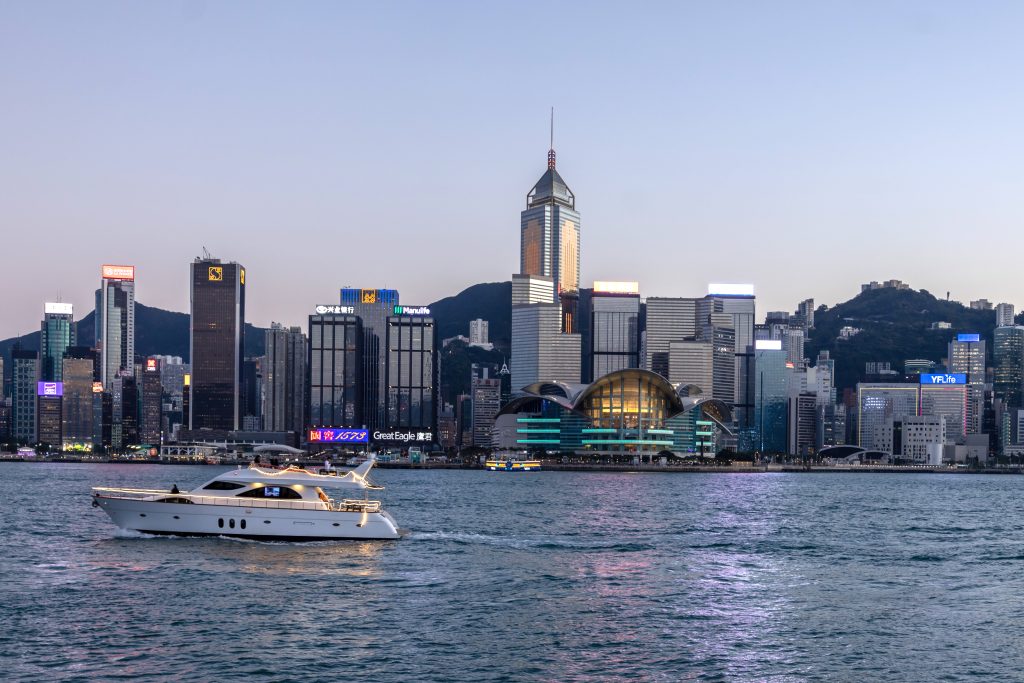
HONG KONG authorities are intensifying tax checks of private equity and venture funds as the Asian financial hub faces pressure to plug deficits.
Over the past 12 to 24 months, the Inland Revenue Department has stepped up reviews on management fees and so-called carried interest to managers in Hong Kong. Some tax advisers said they have seen a jump of as much as 50% in funds seeking guidance on how to respond to inquiries from the authorities during that period.
Authorities are “ramping up” their collection efforts, said Patrick Yip, vice chair and international tax partner at Deloitte China. “We’ve seen a noticeable increase in inquiries from fund clients seeking advice on how to deal with inquiries from the Hong Kong tax authorities in the last two years.”
Hong Kong, which prides itself on its low taxes, is battling a sluggish economy and steep deficits after years of political upheaval, strict Covid curbs and a slumping housing market. The government is looking at drastic measures, including cutting 10,000 civil servant jobs and ways to boost revenue, such as potentially regulating basketball betting. In 2024, it raised taxes on high earners — the first hike in two decades. The city’s top income tax rate is 17% and it has no levies on capital gains.
The IRD has a standing practice “to select high-risk cases for post assessment review, including audit and investigation” which applies to all taxpayers and industries, a spokesman said, adding that there’s no “step-up measure” applied to investment managers.
As long as it’s “commercially realistic” and lacks the “hallmarks of tax avoidance” the IRD won’t interfere with business arrangement between a fund and the investment manager on distribution of carried interest and fees, the spokesman said in an email.
Hong Kong authorities view carried interest as a performance fee, which is taxed at about 15% to 16.5%, while management fees are subject to the 16.5% corporate tax rate.
While there’s no specific data on fund reviews, the department’s audit and investigation team assessed back taxes and penalties of HK$3.3 billion ($422 million) during 2023/2024 for businesses and individuals, up 27% from the preceding period. Still, the number of cases were roughly unchanged at 1,802, suggesting it went after bigger pots of money.
Kenneth Yim, founder and tax partner at KYT, said in most cases over the past years the IRD has examined it has asked that carried interest, management and advisory fees be attributed to taxable local entities rather than offshore entities in places such as the Cayman Islands.
“In light of the government’s budget deficit, the IRD has ramped up its enforcement efforts in recent years,” Yim said. “This applies broadly to all taxpayers, including those in the fund industry. It’s expected that the IRD will continue applying an increasingly stringent approach to reviewing cases in this regard.”
As of 2023, about 650 private equity and venture capital firms with assets of $215 billion had a home in the city, of which close to 60% were regional headquarters, according to the Hong Kong Monetary Authority.
Concessions
At the same time, the city has been seeking to lure funds, family offices and wealthy individuals with tax concessions to bolster its status as a global financial center and wealth hub. Back in 2021, it passed a law exempting some carried interest, but it hasn’t had the intended effect and is now being modified.
The city’s exemptions on carried interest was design to prod more funds to relocate back to Hong Kong, which would allow it to raise more taxes from fees. But managers have encountered difficulties fulfilling requirements — such as a certification by the HKMA, the city’s de facto central bank.
As a result, the concession “has not been widely adopted,” according to a 2023 report by the Alternative Investment Management Association.
To enhance the tax regime, the Financial Services and Treasury Bureau issued a paper in November 2024 with proposals including making more transactions eligible for carried interest concessions and doing away with the HKMA certification requirement.
The government will formulate proposals to refine various preferential tax regimes for the asset and wealth management businesses including that for carried interest and aims to submit the proposals to the legislative council next year, with a view to apply the measures from 2025/2026, the spokesman said.
Hong Kong’s latest push is coming at a tough time for investment firms that have struggled to raise money in recent years, with funding from US investors drying up amid rising geopolitical tensions.
According to Deloitte’s Yip, the firm has seen the tax authorities open up more audits of sub-managers for the pre-Covid years when the funds were having some of their better years, as the six-year statute of limitation is running out.
The spokesman for the tax authorities said that a review can cover a number of years, whether before or after Covid.
Kher Sheng Lee, co-head of Asia Pacific at Alternative Investment Management Association, said with the right policies Hong Kong can attract a larger share of income that is being kept in other jurisdictions.
“There’s billions of US dollars at stake in management fees and carried interest tied to Hong Kong’s alternative asset management industry,” said AIMA’s Lee. “Much of that still sits offshore.” –BLOOMBERG
The post Hong Kong ramps up tax checks on private equity, venture funds appeared first on The Malaysian Reserve.
